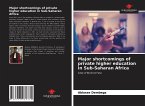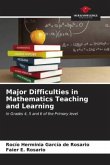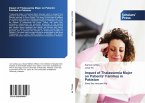"Many a humanities major has been asked the dreaded question, "So, what are you going to do with that?" The common wisdom is that college programs in the humanities encourage a lot of high-minded thinking useless outside of a rarefied college campus. This new book from CoreyMoss-Pech shows us that not only do humanities majors learn skills, they actually use them when they graduate. They learn to write documents necessary in the modern workplace and master linguistic nuance. Their seemingly practically-minded peers-graduates of business or engineering programs-often find themselves doing data entry and other clerical tasks after graduation-jobs you don't necessarily need a degree to perform. Despite this discrepancy, graduates with practical arts degrees are much more likely to find jobs, and they earn far more money. What factors lead to this undervaluing of a liberal arts education despite the useful skills those students acquire? Moss-Pech conducted interviews with roughly ninety students from four majors-Engineering, Business, English, and Communications-at a large Midwestern state school. He follows these students through their senior years and after graduation as they looked for and started new jobs and established social identities outside of school. Differences in career outcomes for these students, it seems, begin during college. Universities and large firms provide a number of internship programs to practical arts majors, which often open the door to a job postgraduation. On the other hand, liberal arts students are largely left to carve out their own paths. They struggle to find work after graduation, even with multiple internships under their belts. Moss-Pech calls this discrepancy the paradox of marketability: the labor market doesn't value the skills liberal arts students learn, whereas practical arts graduates are highly sought-after, even if their skills are not. The blame doesn't just lie with the labor market, though: Schools are perpetuating the myth that practical arts majors are more valuable, inadvertently contributing to a less-prepared workforce. If universities recommit to the value of the liberal arts as skill-based learning, Moss-Pech argues, the labor market will begin to reward them for their quality educations"--
Hinweis: Dieser Artikel kann nur an eine deutsche Lieferadresse ausgeliefert werden.
Hinweis: Dieser Artikel kann nur an eine deutsche Lieferadresse ausgeliefert werden.








